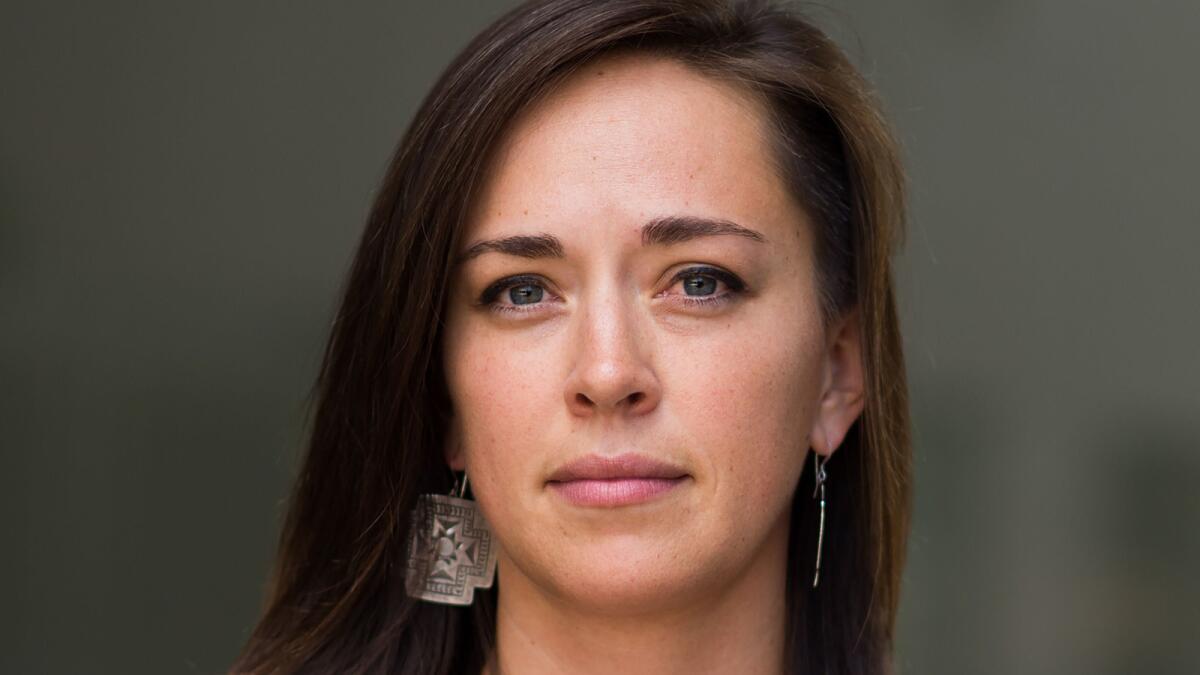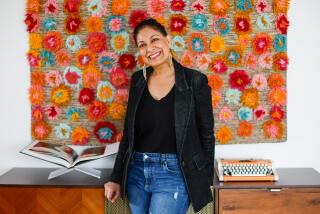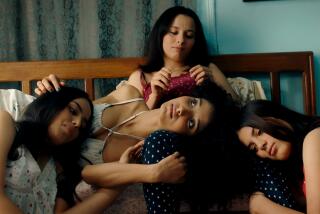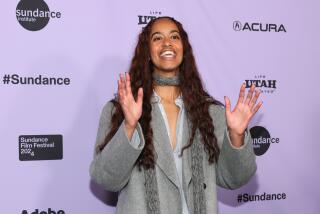Q&A: ‘On Her Shoulders’ director spotlights Nobel Prize winner Nadia Murad’s fight for global justice
In “On Her Shoulders,” director Alexandria Bombach showcases the herculean efforts of Yazidi-born Islamic State sex slave survivor and 2018’s Nobel Peace Prize co-winner, Nadia Murad, as she pleads with global governments to assist her people. The behind-the-scenes energy and persistence such an undertaking requires is rarely covered by the media.
Even Bombach was surprised by what she saw: “I’d never seen behind the curtain of advocacy or what it takes at this kind of global level,” she says. “The pageantry that abounds, the agendas everyone has, the sheer marketing of it all. My responsibility was to show that side, because that’s the side we don’t get to see.
“And I realized Nadia did change in the time we filmed — how she’d become very disillusioned with the process. So throughout I reflected a lot on our role: whether it’s as a journalist or documentary filmmaker — what are we really doing here? What’s the job? Hers and ours.”
You don’t use a traditional profile format in this film; Nadia’s past isn’t shown and the focus is tightly on her present. Did you start the project with this vision?
Yes, I wasn’t really into the biopic. She’s so young and her life is unfolding so fast it didn’t feel right to go in that direction. And once I saw how her media coverage was focused almost exclusively on her past and captivity, I made the deliberate choice to show the problematic side of that, the sensationalizing and the gawking at the trauma, the voyeuristic patterns of questioning but no real help for the Yazidis. For me, the film became more about modern advocacy and our role in it as storytellers and story listeners and how that breeds this system for the modern-day trauma survivor.
The audience also sees survivor guilt played out on a big scale. Most people don’t go through the endless painful system Nadia does in the film.
It was strange for me to see the celebration and encouragement of her doing this but never really recognizing how painful it all was for her and how she really felt she had no choice. So I hesitate when people celebrate young women who are survivors of sexual trauma: for the resilience, the strength, etc. I think we’re forgiving ourselves and being complicit in this journey of what they have to do to get the world to listen.

You could have edited the footage in many different ways since it has many overlapping topics: modern human rights advocacy, media, fame, government bureaucracy. Was this a particularly hard film to edit?
Not to be controlling, but I like to edit my own films and this one was really difficult; it was harder than the shoot, in fact. Because shooting you just focus and do the best job you possibly can, it’s a different personal space. When I edit, I’m trying hard to open my chest up and feel feelings I experienced with her, so it was a difficult thing. Also, I’m rewatching [Islamic State] videos over and over again, then sobbing, and really trying to understand the severity of the issue and Nadia’s emotions. It was very difficult to try and constantly open up my chest to all these complexities. It was about a yearlong edit.
Was the one sit-down interview with Nadia woven throughout the documentary long or difficult?
Actually, it was the shortest interview I’ve ever done. It was so impactful because we stuck to questions she wasn’t used to being asked; nothing about her captivity, it was about her present and her work and observations of our time together. It unfortunately fell between her U.N. ambassadorship and when she spoke at the U.N. General Assembly. It was only four days between those two big events, so emotions and reflections were high. For better or worse, it was the only time we could do the interview.
It’s hard not to connect Nadia with Malala Yousafzai [also a young non-western woman, Nobel Peace Prize winner and survivor of Islamic State terror].
Yes, a lot of people are calling this the anti-Malala doc. Yet I think it’s difficult and also problematic to throw these women in the same bucket as that’s oversimplifying their stories. A lot of people from the West make themselves feel better about these situations by hoisting up these pillar women — focusing on their strength and resilience without having to really deal with the core issue [sexual violence against women in war].
What’s your next film?
My previous film was about Afghanistan, so I’ve made pretty heavy films back to back. I’m taking a break and making a film about the Indigo Girls. My stepdad says, “You need to sharpen the saw.” This was a very isolating and lonely film to make — playing creative on every role — so I need to do some healing and nothing can heal you like the Indigo Girls.
FULL COVERAGE: Get the latest on awards season from The Envelope »
More to Read
From the Oscars to the Emmys.
Get the Envelope newsletter for exclusive awards season coverage, behind-the-scenes stories from the Envelope podcast and columnist Glenn Whipp’s must-read analysis.
You may occasionally receive promotional content from the Los Angeles Times.






